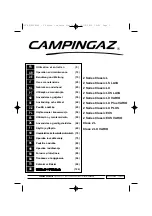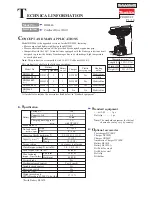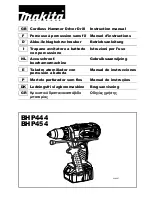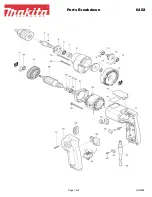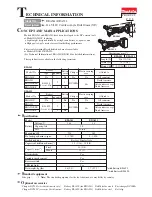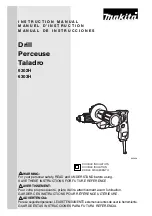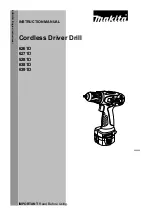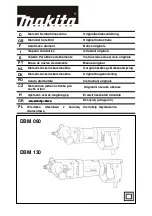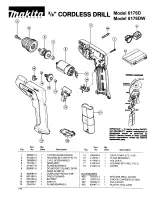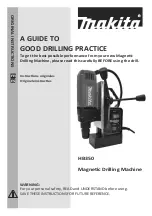
English
19
MAINTENANCE AND INSPECTION
CAUTION: Pull out battery before doing any inspection or maintenance.
1.
Checking the condition of the bit
The bits should be checked regularly. If worn or
broken bits can slip or decrease the efficiency of
the motor and burn it out.
Replace worn bits with new ones.
CAUTION
If you use a driver bit of which point is worn or
broken, it will be dangerous since it slips. So
replace it with a new one.
2.
Check the Screws
Loose screws are dangerous. Regularly inspect
them and make sure they are tight.
CAUTION
Using this power tool with loosened, screws is
extremely dangerous.
3.
Maintenance of the motor
The motor unit winding is the very “heart” of the
power tool.
Exercise due care to ensure the winding does not
become damaged and/or wet with oil or water.
4.
Inspecting the carbon brushes (Fig. 18)
The motor employs carbon brushes which are
consumable parts. Since and excessively worn
carbon brush can result in motor trouble, replace
the carbon brush with new ones when it becomes
worn to or near the “wear limit”. In addition,
always keep carbon brushes clean and ensure that
they slide freely within the brush holders.
NOTE:
When replacing the carbon brush with a new one,
be sure to use the Hitachi Carbon Brush Code No.
999054.
5.
Replacing carbon brushes
Take out the carbon brush by first removing the
brush cap and then hooking the protrusion of the
carbon brush with a flat head screw driver, etc., as
shown in Fig. 20.
When installing the carbon brush, choose the
direction so that the nail of the carbon brush agrees
with the contact portion outside the brush tube.
Then push it in with a finger as illustrated in Fig.
21. Lastly, install the brush cap.
CAUTION
●
Be absolutely sure to insert the nail of the carbon
brush into the contact portion outside the brush
tube. (You can insert whichever one of the two
nails provided.)
●
Caution must be exercised since any error in this
operation can result in the deformed nail of the
carbon brush and may cause motor trouble at an
early stage.
Fig. 18
Wear limit
0.12" (3mm)
0.45"
(11.5mm)
Fig. 19
Nail of carbon brush
Protrusion
of carbon
brush
Fig. 20
01Eng_DS18DSDL_US1
1/24/12, 16:14
19































